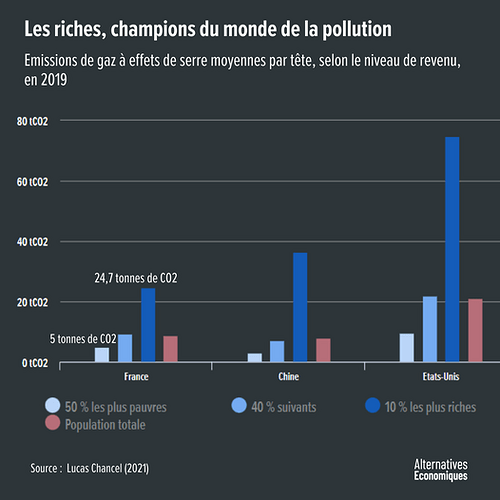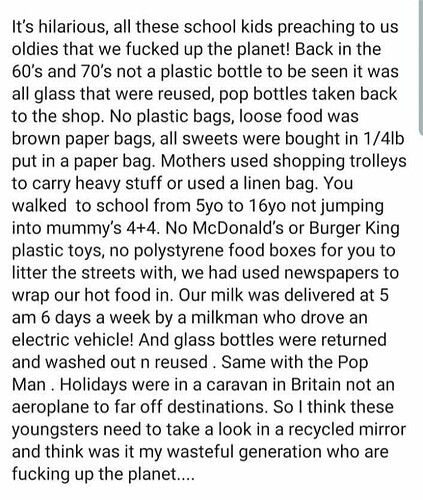Thanks Geof. 2 years since my last post on SF? Wow. Time flies when you’re trying to renovate an old house! When (if) I ever finish making windows, laying floorboards, etc., I’ll look forward to being a more regular contributor…
I agree that very few people - world leaders or otherwise - really see the mess. There are none so blind… and all that. The conspiracy theorist in me says that those with influence and money have tried hard to sweep the mess under the carpet and we’re not supposed to see it, although it’s starting to poke out around the edges more and more these days.
We may have to agree to disagree regarding population, as my research and observations have convinced me that its importance and relevance can’t be overstated. Your comments about rich and poor are entirely valid, of course, as are those about addressing poverty and education. But we’re not just talking about carbon emissions or climate (although, heaven knows, those are big enough topics on their own). As you said in one of your earlier posts, we must “take in the whole picture of climate and ecological breakdown”.
As soon as you start investigating the bigger picture, of which carbon emissions and climate are a part, you cannot help seeing the impact of overpopulation everywhere. Consider the amount of waste and pollution we generate, the inexorable expansion of our towns and cities, the increasing demand for food production and energy, our destruction of habitats and other species, etc., etc. Our infrastructure and systems are creaking under the weight of almost 8 billion humans and we see the effects every day in traffic queues, waiting times for medical treatment, spiralling allergies and mental health issues, civil unrest…
We’ve all seen the statistics that the world has already lost 85% of its forests and 95% of its wildlife, and we know that the states of our oceans, ice caps, pollinators and weather patterns are on the brink of irreversible tipping points. All of this is a result of human activity. If any other species on Earth was having such devastating effects, we’d have taken action to reduce their numbers long ago.
If we don’t take some pretty rapid steps to bring our population back into balance with the natural world and the sustainable carrying capacity of our planet, something’s gotta give. And it won’t be pretty when our failure to acknowledge this comes back to bite us in the derrière.

 and it’s getting
and it’s getting 


